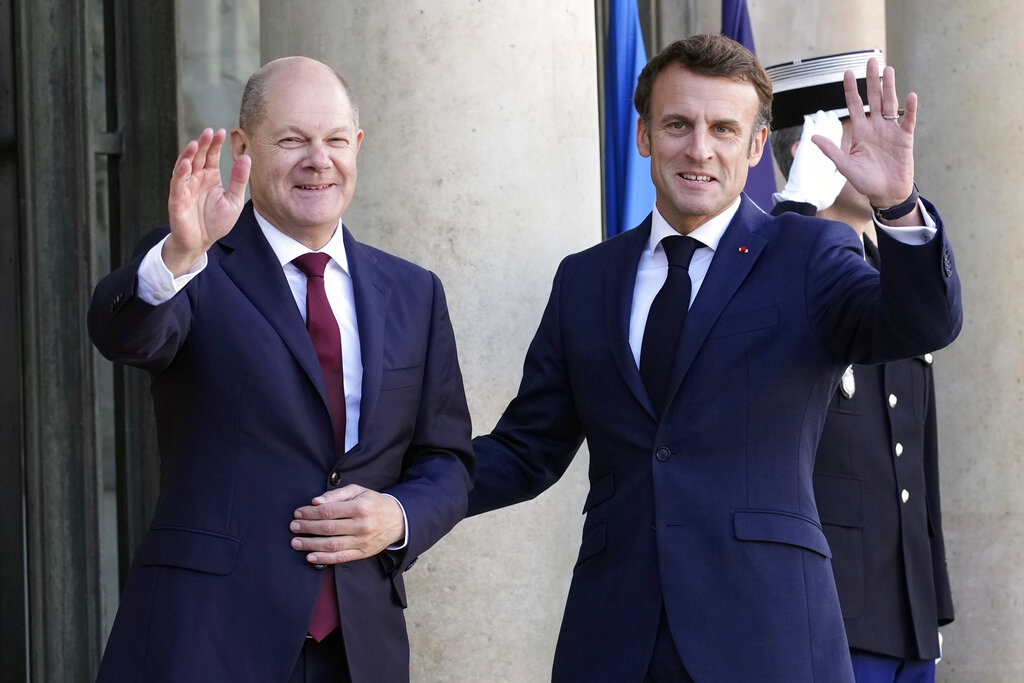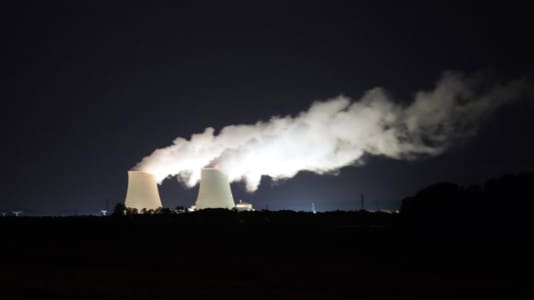The idea that Poland and other eastern countries will somehow pick up the slack from a weakening Western Europe and become a new economic powerhouse is a “pipe dream,” writes author Bruno Bandulet, who also works as a weekly columnist for German newspaper Junge Freiheit.
“But if Germany crashes, what does that mean for the European Union? Brussels follows the lead from Washington, a European response to the war remains absent. The idea that the powerhouse of the EU will shift to the east, by which is meant to a large extent by Poland, remains a pipe dream,” wrote Bandulet.
Despite arguments that the east of Europe will help offset Western output drops, Bandulet makes arguments against this development.
[pp id=49213]
The commentator argues that Germany and France make up 40 percent of the entire EU economy of 27 member states, and if Germany is on the ropes, that means all of Europe is going down with it.
“The four Visegrád countries (account) for just under 7.5 percent (of GDP). No one can replace the German engine, and certainly not the enormous German contributions to the Brussels redistribution machine, which are already on the rise again.”
In what should worry all of Europe, the German author points to how Germany’s economic outlook is already rapidly deteriorating.
“When the winter gets cold and the gas runs out, the four major economic research institutes in the country fear the longest economic crisis since World War II. In 2023, economic output could shrink by 7.9 percent and in 2024 by 4.2 percent. Deutsche Bank already sees the beginning of Germany’s deindustrialization,” he writes.
[pp id=48504]
He points to massive cancellation of business investments, writing that more planned investments have been cancelled so far in 2022 than during the financial crisis of 2008 along with the Covid-19 crisis of 2020. That means the future is looking increasingly bleak not only for Germany, but also the rest of Europe.
Bandulet predicts that those companies in Germany that cannot pass on massively increased input costs to consumers will face bankruptcy soon. He laments what he said is the inability of the country’s new Green party economic minister, Robert Habeck, to do anything to stem the crisis.
“Ultimately, the OECD will be proved right with its dramatic forecast, according to which the Federal Republic will be the economic laggard among all major industrialized countries next year. And in such a situation, the German economy minister can think of nothing better than to announce that we will all become poorer. That’s not what he’s in office for, that’s certainly not what he was elected for.”
Sanctions are disastrous for Germany
Bandulet outlines how Germany reached the situation it is in due to a combination of the country’s shift towards green energy coupled with runaway money printing from the European Central Bank.
“The seeds of the most persistent inflation in a hundred years were sown by the European Central Bank. It flooded the eurozone with money as in wartime and did not react until this year — too late; inflation was already galloping away. The Merkel government’s failed energy turnaround was based on the idea that it could do without nuclear and coal by filling the gap with cheap Russian natural gas — after all, the Russians had always delivered reliably, even during the Cold War.”
He notes that this plan collapsed after the war in Ukraine broke out, noting that Germany’s gas tanks may be currently full, but they were filled at prices ten times more than what Germany previously received from Gazprom.
To underline just how important this gas was, he points to BASF’s massive plant in Ludwigshafen, which “consumes more gas than the whole of Switzerland.” Without cheap gas, steel, chemical production, and auto manufacturing suddenly becomes exponentially more expensive for Germany, which will drive the country’s deindustrialization.
[pp id=43102]
Just as Hungarian Prime Minister Viktor Orbán is urging, Bandulet argues that repealing at least some sanctions is a simple matter of self-preservation. He also hints that it was not Russia that blew up the pipelines, as is the standard line in the German media and press, as the pipelines have been vital to Germany’s economic interests as well as Russia’s. These two nations that can mostly be ruled out based purely on asking, Cui bono, or “Who does it benefit?”
“It is legitimate to ask whether Berlin and the EU would not have been better advised to provide financial and humanitarian support to hard-pressed Ukraine, but at the same time exempt Russian raw materials from the sanctions. The sanctions had and continue to have no influence on Moscow’s ability to wage war. There is no obligation to commit economic suicide. By the way, we would still like to know who blew up the Nord Stream pipelines.”
Debt danger
Bandulet argues that European expansion cannot go on, even if Olaf Scholz is dreaming of an EU made up of 36 members. He says it is “anyone’s guess who will have to foot the bill for the newcomers.”
German taxpayers face a serious threat over efforts to pool the debt of weaker EU countries.
“In reality, the idea is to enable the cash-strapped eurozone states to take on new debt that they are unable to raise on their own at tolerable interest rates, and they do not even increase the respective national debt levels, because they are attributed to the EU as a whole,” he writes.
The danger for Germany is that Paris and Rome may grow closer even as Berlin and Paris grow apart. This would increase the pressure on Germany to bend over debt, and potentially leave Germans even more on the hook for other member states than they already are, especially during a time when Germany’s future prosperity looks increasingly diminished.






